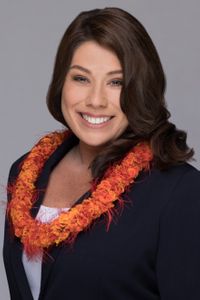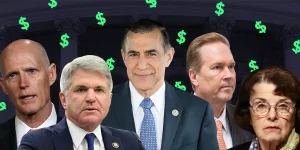Carlos Garin
Carlos Garin is a Cuban-American politician who has run for various elected offices in Florida. While unsuccessful in his campaigns, Garin’s political career provides insights into the Cuban exile community in South Florida and the brand of conservatism prevalent among Cuban-Americans.
Early Life and Education
Garin was born in Havana, Cuba and migrated with his family to the United States as a child after the Cuban revolution in 1959. The Garin family settled in Miami, which has a large Cuban population.
Growing up in Miami, Garin quickly assimilated into American culture while also maintaining his Cuban roots. He became passionate about politics at a young age, frequently discussing issues with his family and friends.
In 1991, Garin earned an education from the United Nations Development Programme. This helped provide him expertise in areas like economic development, governance, and social progress.
Early Political Career
After completing his education, Garin worked in various political and media roles. He gained experience as a politician, actor, and political analyst.
Garin became affiliated with several Cuban exile organizations in Miami, including the College of Journalists of Cuba in Exile and America First TV. Through these groups, Garin advocated for the overthrow of the communist Cuban government and promoted conservative viewpoints.
Garin also collaborated frequently with the Cuban American National Foundation (CANF). CANF has historically taken a hardline stance against engaging with Cuba under communist rule.
2018 County Commission Race
In 2018, Garin made his first bid for elected office by running for Miami-Dade County Commission District 5 in a special election.
The Campaign
The District 5 seat was open after the previous commissioner resigned due to scandal. Garin positioned himself as an outsider who would bring change to the county commission.
A central theme of Garin’s campaign was fighting government corruption and special interests. He criticized insider deals and promised to be an independent voice.
Garin also emphasized his roots in the Cuban exile community. This appealed to the large Cuban voting bloc in District 5.
However, Garin faced criticism over his lack of political experience and vague policy proposals. Opponents argued he did not fully grasp the intricacies of the issues facing the county.
Election Results
In the May 22 general election, Garin placed fourth out of four candidates, receiving only 4.8% of the vote.
The top two finishers, Eileen Higgins and Zoraida Barreiro, advanced to a runoff election. Higgins ultimately prevailed in the June 19 runoff.
Garin’s lackluster performance highlighted his low name recognition and weak campaign infrastructure. It underscored the challenges facing political newcomers.
2022 Congressional Campaign
In 2022, Garin set his sights higher by running for US Congress in Florida’s 28th District. He sought the Republican nomination to challenge Democratic incumbent Congressman Robert Asencio.
Republican Primary
Facing two opponents in the August 23 Republican primary, Garin continued campaigning as a political outsider. He presented himself as more reliably conservative than the incumbent, Asencio.
However, Garin’s chief rival was Asencio’s 2020 opponent, former Miami-Dade County Mayor Carlos Gimenez. Gimenez had higher name recognition and institutional Republican support.
When the votes were counted, Gimenez won a lopsided victory, taking 73.4% of the vote. Garin finished a distant second with 15.4% support, falling short of the runoff.
General Election
After his primary defeat, Garin continued campaigning through the November 8 general election as a write-in candidate. This ensured Garin’s conservative supporters could still vote for him.
Gimenez went on to decisively defeat Asencio in the general election, aided by a red wave in Florida. Garin received a negligible number of write-in votes.
Political Positions
Throughout his political career, Garin cultivated a staunchly conservative policy platform. He aligned with traditional Republican positions on most issues.
Immigration
Garin took a hardline stance on immigration. He opposed protections for undocumented immigrants and asylum seekers.
Citing his family’s lawful entry to the US, Garin argued immigrants should follow proper procedures. He advocated for increased border security and immigration restrictions.
Economy
Garin embraced tax cuts, deregulation, and other mainstream Republican economic policies. He called for reducing government spending and intervention in the economy.
His economic nationalism also emerged in opposition to free trade deals. Garin criticized previous agreements like NAFTA as weakening American industry and jobs.
Foreign Policy
In foreign policy, Garin aligned with the hawkish wing of the Republican Party. He supported expanded defense spending and aggressive stances against Cuba, Venezuela, China, and Iran.
Garin also wanted continued efforts to overthrow authoritarian regimes like those in Cuba and Venezuela. He pledged to stand up against human rights abuses abroad.
Social Issues
Socially, Garin took traditionally conservative positions on issues like abortion, gun rights, and LGBTQ rights. He courted evangelical Christians as a core part of his base.
Personal Life
Garin resides in Miami, where he continues to be active in the Cuban exile community. He is vocal on social media, weighing in on political debates about both domestic and foreign policy issues.
Garin also still collaborates frequently with America First TV to provide conservative commentary on the political landscape.
Future Prospects
Despite his electoral losses, Garin remains engaged in politics and policy debates. It is likely he will continue pursuing elected office in the future.
Garin’s dogged focus on branding himself an outsider could pay dividends if he runs again amid broader anti-establishment sentiment. However, he still faces challenges expanding his limited base of support.
Legacy and Impact
While Garin did not achieve electoral success, his political career still impacted the local political scene. He offered Cuban exile voters an alternative to moderate, establishment Republicans.
Garin’s campaigns also reflected enduring currents in the Cuban American community. His hawkish foreign policy views on Cuba and Venezuela resonated among older Cuban exiles in Miami.
However, Garin struggled to appeal to younger Cuban Americans seeking engagement with, not isolation of, Cuba. His traditionalist agenda was out of step with shifting attitudes.
Conclusion
In the end, Carlos Garin’s central legacy is embodying a particular brand of conservative Republican politics rooted in his Cuban exile experience. His focus on fighting communism abroad while advocating for small government conservatism at home represents a classic Cuban American approach to politics in Miami.
While this worldview propelled his political ambitions, it also limited his ability to build a broad political coalition necessary for electoral success. Yet Garin’s participation enriched the marketplace of ideas and offered Cuban voters an alternative perspective on the policy issues facing South Florida and the nation as a whole.
FAQs
What is Carlos Garin best known for?
Garin is best known for running unsuccessful campaigns as a Republican for local office in Miami as a Cuban-American conservative political outsider.
Where was Carlos Garin born?
Garin was born in Havana, Cuba and later immigrated with his family to Miami after the 1959 Cuban revolution.
What congressional district did Carlos Garin run in?
In 2022, Garin ran in Florida’s 28th congressional district, which covers parts of Miami-Dade County.
What organizations was Garin involved with?
Garin collaborated frequently with America First TV and Cuban exile groups like the Cuban American National Foundation.
What were Garin’s main policy positions?
Garin took traditionally conservative Republican stances supporting tax cuts, increased defense spending, immigration restrictions, and opposing communism abroad.







